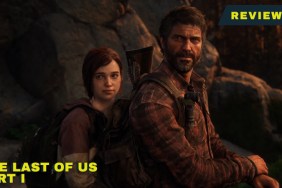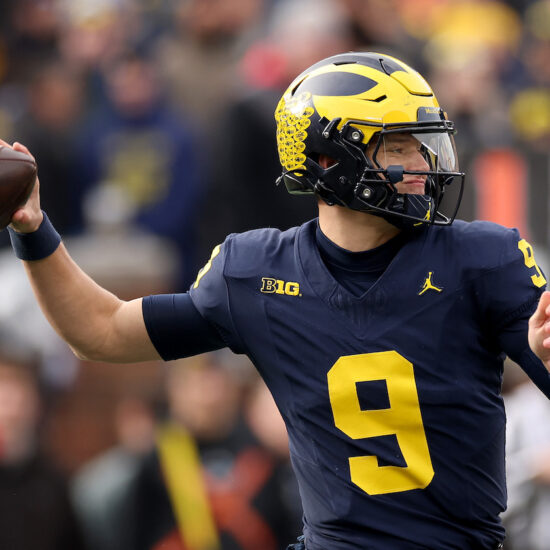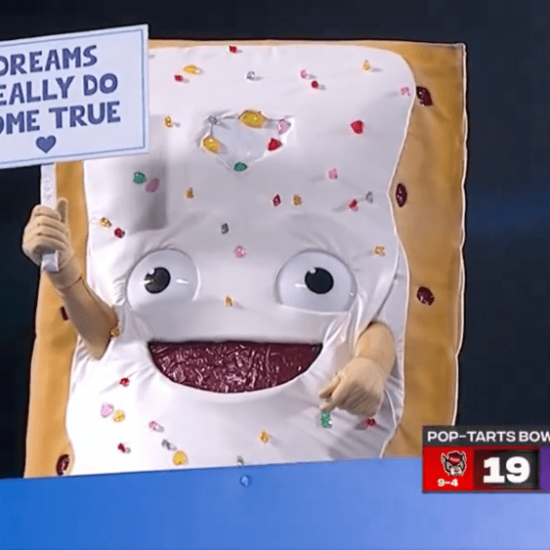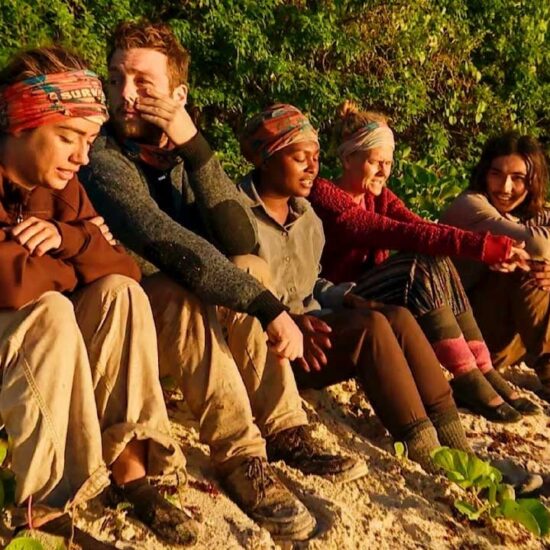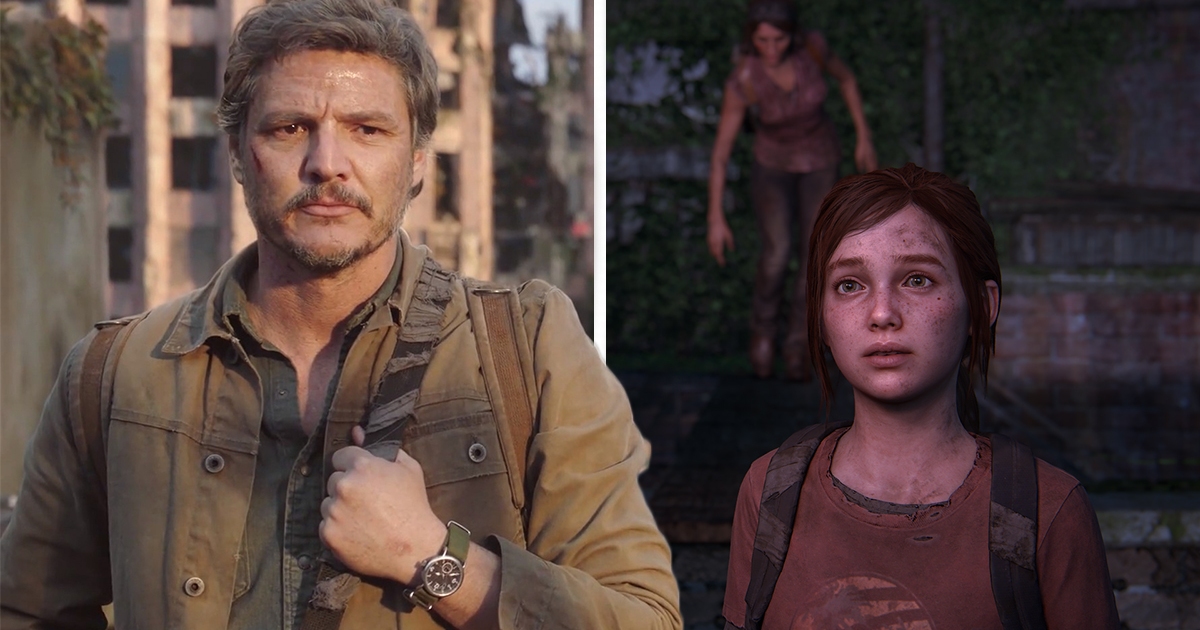
Video game adaptations require big changes to fit the needs of a more passive medium. Craig Mazin and Neil Druckmann handled this move quite well in HBO’s The Last of Us and were able to graft the game’s strengths to the show while also adding to the world to make it more than a simple retelling. Not all changes are created equal, though, as some made the show excel where the game didn’t and vice versa. And while both are fantastic in their own right, here’s how each episode stacks up to its counterpart in the game.
Episode: “When You’re Lost in the Darkness” vs. Hometown, The Quarantine Zone
The Last of Us has an unforgettable intro, yet the show comes out on top because of its ability to flesh out that world before the outbreak. This gives viewers more time to bond with Sarah and care for her more dearly. Naughty Dog did something similar by letting players control her in the beginning, which took advantage of the medium’s interactivity, but that shortcut obviously can’t be used the same in television. The scene of the neighbor’s infection is also significantly creepier, as an old woman unnaturally slinking around is a bit scarier than Mr. Cooper crashing through the glass door.
The post-Outbreak Day sections are also more thoughtfully introduced. Viewers get to see how Robert screwed Tess over instead of just being told about it. The battery Joel wants as payment also has more story significance than just the nebulous weapons he was promised in the game since he wants the battery to go see Tommy. All of this cuts down on chasing Robert and the tutorial sections, too, which are the weakest parts of that game. Setting everything up takes time in video games, and that’s not always beneficial in an interactive medium. However, taking more time for initial worldbuilding can work better in the realm of TV and this debut, from its unexpected talk show intro to radio tease at the very end, shows exactly why.
Winner: “When You’re Lost in the Darkness”

Episode: “Infected” vs. The Outskirts
This one is a close match, but the TV show takes it mostly because the game is still somewhat in tutorial mode at this point. The slower segments that the game needs to introduce the player to its systems are more apt for a television show since they’re almost exclusively focused on dialogue and worldbuilding and not concerned with slowly laying out how to swing a melee weapon or throw a bottle.
The added dialogue in the show further sells the rift between Joel and Ellie, as he’s more consistently vocal about his displeasure surrounding the deal, which also then contrasts nicely with Ellie’s array of well-delivered jokes. Their awkward exchange when Tess is maneuvering to open up a path is a clear example of this and not something the game takes its time to do. This steady buildup gives Tess’ pleas to Joel to finish the deal even more weight since it’s more obvious that he isn’t happy with this arrangement.
Thanks to some clever framing in the show and overly narrow level design in the game, the scenes with the infected are also stronger in the show. Seeing the Clickers through the glass and how the infected communicate is more engaging than having to take down infected in the museum’s cramped halls.
The incredible cold open in Jakarta is the biggest differentiator, as it lays out the grimness of the outbreak while also giving a more global view of it. The games tend to focus on the more local effects of how the world ended, which works, but broadening it out like this does open up the universe a bit more.
Winner: “Infected”

Episode: “Long, Long Time” vs. Bill’s Town
Bill’s Town is where the game truly begins since it’s where Naughty Dog takes off the training wheels and starts giving players more weapons and tougher encounters. It’s even full of incredible moments, like when Joel hangs upside down and has to defend Ellie and the Bloater fight in the high school gym. Bill and Ellie’s catty banter is also hilarious since it shows how kooky Bill is while also demonstrating Ellie’s ferocity.
But even though Bill’s Town is a highlight in the game, “Long, Long Time” is just a sublime short film. Watching Bill and Frank’s relationship play out is the biggest swerve from the games and tells a similar story from the opposite angle. In the game, Bill shows Joel what he’d be like if he had no one to care for: a shut-in lunatic who mutters to himself because he’s pushed away everyone who doesn’t have a mushroom for a face. In the show, Bill shows Joel that finding someone to care for has value is a key to happiness, a shift that makes him a role model instead of a cautionary tale. This more optimistic angle beautifully flips the lesson on its head and tells a touching love story where survival isn’t just the key; it’s about making the most out of the time that is left.
Winner: “Long, Long Time”

Episode: “Please Hold to My Hand” vs. Pittsburgh
Pittsburgh is even more gameplay-oriented than Bill’s Town and is full of significantly more complex combat arenas. That itself is thrilling since its tense encounters are always so dynamic and replayable due to the game’s unpredictable A.I. Clearing out the hotel, skulking through its creepy basement, and wiping out the bandits in the bookstore and financial district make for some of the best battles in the game since they’re all open and never play out the same way twice. The team also leans a little away from cutscenes and more toward environmental storytelling, which keeps up the pacing.
And while it is satisfying to play, the show’s portrayal of this section gives it the slightest edge. Humanizing the bandits echoes what Naughty Dog did with The Last of Us Part II, as the bad guys are no longer faceless goons and have somewhat justifiable motivations. Applying this lesson from that sequel was smart since it allows for more nuanced characters on both sides. Kathleen is ruthless, but her anger is sound, which is more thoroughly explained in the following episode.
Winner: “Please Hold to My Hand”

Episode: “Endure and Survive” vs. The Suburbs
And that more thorough explanation is why “Endure and Survive” is a slightly more memorable episode than The Suburbs section. Kathleen’s anger toward Henry more effectively colors him with shades of gray. He does abandon Joel in the game, but ratting out someone to the hostile F.E.D.R.A. forces in exchange for medicine is significantly more cruel. Making Sam deaf was also a creative artistic flourish that more clearly makes him codependent on his brother.
Both also have excellent sniper sequences and for different reasons. The chaos of the show with the massive fight between the infected and Kathleen’s army is wild and the show’s most bombastic set piece. In the game, sneaking down that long corridor while also fighting bandits is a stressful fight that pushes players to be more clever about how they use cover and advance. They’re slightly different takes, but fantastic nonetheless, making this one of the tougher comparisons.
Winner: “Endure and Survive”

Episode: “Kin” vs. Tommy’s Dam, The University
“Kin” is a special case because it blends Tommy’s Dam and The University into one tight episode. And since one is better in the show and the other is better in the game, it’s hard to pick a winner here.
“Kin” excels as an episode because it actually takes viewers inside of Jackson, which Naughty Dog didn’t have time to fully implement, according to a recent interview with Druckmann. It’s why players only visit the dam in that section of the game. But being able to tour the place, see how people live, and the life Joel could have is more effective than being told about its qualities while fighting off raiders in a dilapidated dam.
Showing off Joel’s anxiety was also a great new wrinkle since the game doesn’t as clearly show that side of his mind. His emotional moments with Tommy are the payoff to that setup since his vulnerability communicates how distraught he’d feel about letting down another young daughter-like figure. And while the game handles Ellie’s attempted escape a little better since it is more reckless and dramatic for her to jet off in anger (and it’s not that clear how she hears Joel and Tommy talk in the show), this whole section’s focus on character is more compelling in the TV series.
However, almost completely skipping past the university is unfortunate since that level excels in environmental storytelling and building Joel and Ellie’s bond. Having Joel explain football and seeing how the students dealt with a deadly pandemic make for great little pieces of worldbuilding. The scene where Joel gets impaled is the highlight, though, because the struggle to take down enemies in a hobbled state is a chaotic set piece, as Ellie is shooting wildly and Joel is fading in and out of consciousness. It’s another area where being behind the sticks heightens the appeal that allows the player to feel more for the character.
Winner: Tie
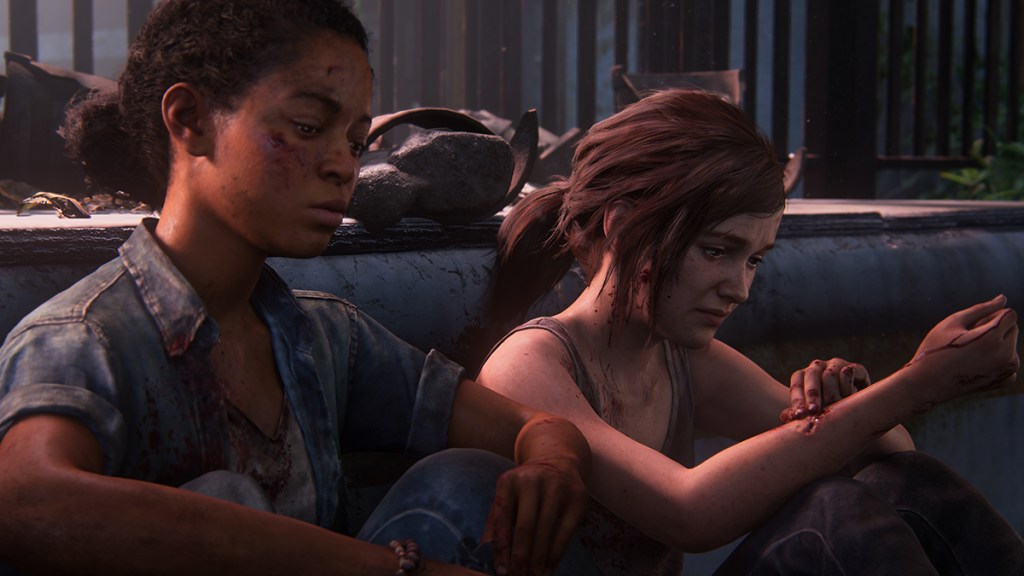
Episode: “Left Behind” vs. Left Behind
People have called on Naughty Dog to incorporate Left Behind into the game’s core campaign in its subsequent releases, but the TV series demonstrates why it’s better as a separate story. Watching Ellie draw on her past to help Joel in the present makes for an excellent dual story where players get to see how a key moment defined her life in one storyline and how that compels her to save Joel’s life in the other. The lengths she goes to procure medical supplies and protect him as David’s goons try to hack his head off gives players her perspective on their relationship, too, since playing only as Joel for the other parts of the game tends to frame their bond more from his point of view.
Nonchalantly rummaging around one mall, while stressfully stalking infected and thugs in the other also makes for an engaging and well-paced gameplay loop that yields story and gameplay in equal parts. There’s a reason it’s one of the best expansions in the entire medium.
Taking away that second half of the story by having Ellie just find the supplies she needed in the same house she was taking refuge in is a little underwhelming by comparison. Her trip with Riley is still charming and heartwarming, as noted by their matches in Mortal Kombat II and dancing scene, but the cuts that were necessary to make it a digestible episode of TV diminish some of the biggest takeaways from the expansion.
Winner: Left Behind
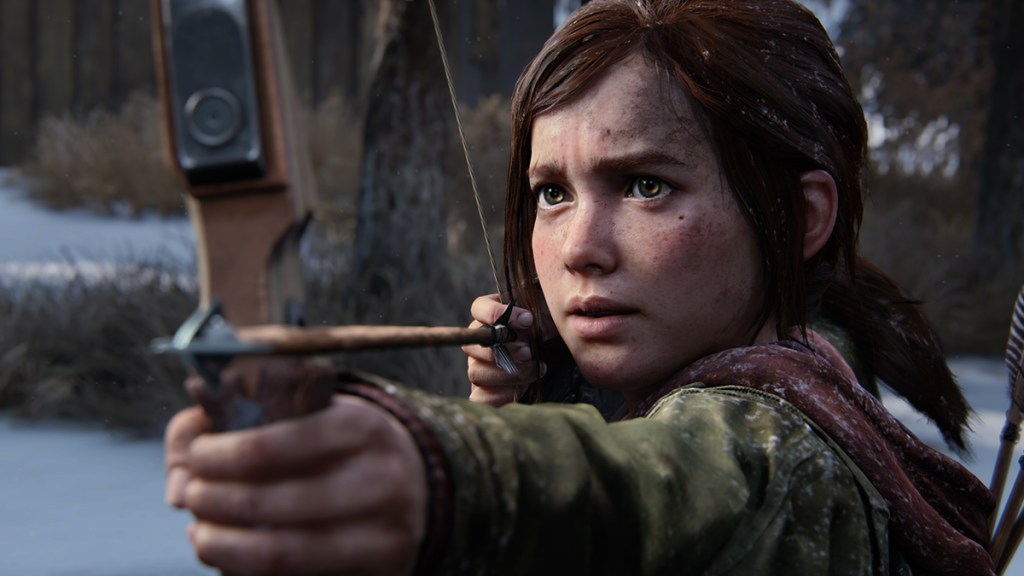
Episode: “When We are in Need” vs. Lakeside Resort
Lakeside Resort’s superiority is also a byproduct of slotting Left Behind into the main storyline. The steady realization that you’re playing as Ellie after the hard cut from Joel’s injury to the snowy landscape is such a well-orchestrated sequence. The switch initially implies that Joel is dead and Ellie has to make her own way to the Fireflies, which is a lot to take in. But it’s not unrealistic because of how something vaguely similar happens in Cormac McCarthy’s The Road, a book and film that The Last of Us takes heavy inspiration from.
Understanding that you’re playing as Ellie has much more impact than shifting the focus to her in the show. It’s where the interactivity benefits the storyline since empathy is felt more strongly through the controller. The gameplay sections also help players learn about David and have some level of fondness for him, as allying with him to blast Clickers strengthens the temporary bond players have with him, which then makes his descent into madness even more shocking. His turn is not strung out quite as carefully in the abbreviated runtime of the show.
The intercutting between Joel and Ellie’s perspectives is also a powerful tool the game uses to build up tension. Watching Joel’s paternal instincts (and dose of penicillin) reawaken him from his grave is made even more exciting because it’s being pitted against Ellie’s struggle to survive in a town that wants her dead. They both build wonderfully and in unison, further showing their bond through gameplay. The TV series mirrors a lot of these scenes almost exactly and is extremely effective because of it, but it’s just another aspect where the controller and extra time play to the game’s advantage.
Winner: Lakeside Resort
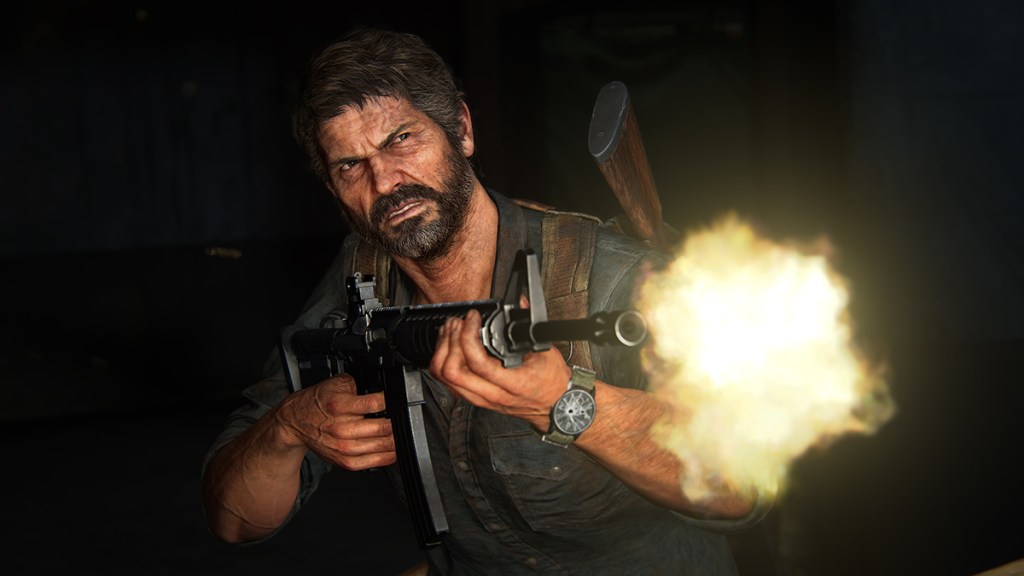
Episode: “Look for the Light” vs. Bus Depot, Firefly Lab, and Jackson
The season finale moves at a breakneck pace, which Druckmann says was deliberate, and it does hit the big beats: Ellie’s initial somber tone, the giraffe, the hospital slaughter, the lie, the unforgettable ending. All of which are still effective here, but, once again, the interactivity of the game adds some more nuance to some of these beats.
Joel trying to boost Ellie up to get the ladder and her not responding is a seemingly minuscule choice, but it’s the repetitive nature of the game that points out how out of it Ellie is. Time after time, players go to a high ledge and press the Triangle button, and Ellie always responds. But the one time she doesn’t highlights how traumatized she is in a way relevant to gameplay. It snaps the player out of their routine and completely turns a simple gamey system on its head.
The hospital scene is also very gamey in the show, as Joel goes on a massacre like he’s got a five-star wanted level. It’s unhinged, yet playing through that long and arduous level elongates that feeling and truly hammers it home how far gone Joel is. Having to deftly weave in and out of cover to take out the many well-armed Firefly forces is also the ultimate final test from a gameplay and story perspective.
These two are once again intertwined by the simple addition of the assault rifle. This weapon finally lets players loose and realize Joel’s rage in a way that the game’s array of more deliberate semi-automatic weapons just can’t do. Players still have to hunt intelligently, but this tool of war evens the odds just a bit more.
As is the case with other episodes, this finale surpasses the game in one area where it’s able to add to the fiction. Seeing Ellie’s mom, Anna, go through her last moments is a powerful scene, especially as Ashley Johnson, who plays Ellie in the games, gives such an intense performance. Fighting off an infected being while giving birth both shows how Ellie was born into violence and provides a solid theory explaining her immunity, both of which thoughtfully inform her character.
This also makes the decision Marlene makes later on even more powerful since it shows how long she’s been with Ellie and gives a glimpse at her friendship with Anna. It’s a shame that the plan for this spin-off didn’t get made into a game, but this opening was still an incredible distillation of that storyline.







